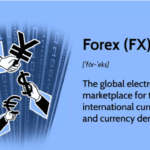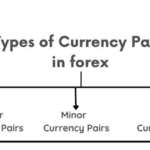How Does the Forex Market Work? Key Players Explained
The foreign exchange market, commonly known as Forex or FX, is the largest and most liquid financial market in the world. With a daily trading volume exceeding $7 trillion, Forex operates 24 hours a day, five days a week, enabling participants to buy, sell, exchange, and speculate on global currencies. But how does the Forex market work, and who are the key players driving this vast financial ecosystem? Let’s dive in.
Understanding the Forex Market
Forex is a decentralized global marketplace where currencies are traded in pairs, such as EUR/USD (Euro/US Dollar) or GBP/JPY (British Pound/Japanese Yen). Unlike traditional stock exchanges, Forex operates over-the-counter (OTC), meaning there is no centralized exchange. Instead, transactions take place electronically through a network of banks, brokers, institutions, and individual traders.
Key Players in the Forex Market
The Forex market consists of various participants, each playing a unique role in influencing currency prices and liquidity. Here’s a breakdown of the key players:
1. Central Banks
Central banks, such as the Federal Reserve (Fed), the European Central Bank (ECB), and the Bank of Japan (BoJ), are some of the most influential players in the Forex market. They manage a country’s monetary policy, control interest rates, and intervene in currency markets to stabilize or devalue their national currency. For example, when a central bank raises interest rates, its currency often strengthens due to higher investor demand.
2. Commercial and Investment Banks
Banks facilitate the majority of Forex transactions, acting as market makers by offering currency trading services to clients. They engage in speculative trading to profit from price fluctuations and provide liquidity by matching buyers and sellers. Investment banks also trade currencies on behalf of large corporations and hedge funds.
3. Hedge Funds and Institutional Investors
Hedge funds, pension funds, and asset management firms engage in large-scale currency trading for speculative and hedging purposes. Their trades can influence market trends, particularly when they execute high-volume transactions.
4. Corporations and Multinational Companies
Businesses involved in international trade frequently engage in Forex transactions to hedge against currency risk. For example, a U.S.-based company importing goods from Europe may exchange USD for EUR to pay its suppliers, thus reducing the risk of currency fluctuations impacting its costs.
5. Retail Traders
Retail traders, including individual investors, participate in the Forex market through online brokerage platforms. With advancements in technology, retail trading has become more accessible, allowing traders to speculate on currency price movements using tools like leverage and technical analysis.
6. Brokers and Market Makers
Forex brokers provide retail and institutional traders with access to the market by offering trading platforms and liquidity. Market makers, on the other hand, facilitate transactions by quoting both buy and sell prices, ensuring smooth market operations.
How Forex Trading Works
Forex trading involves exchanging one currency for another based on market prices. The price of a currency pair is determined by supply and demand dynamics, geopolitical events, economic data releases, and interest rate decisions.
Trading takes place in three major market sessions:
- Asian Session: Dominated by Japan, China, and Australia.
- European Session: Led by London, the world’s largest Forex trading hub.
- North American Session: Heavily influenced by the U.S. and Canadian markets.
Conclusion
The Forex market is a dynamic and fast-paced financial arena driven by central banks, financial institutions, corporations, and individual traders. Understanding the roles of these key players can help traders navigate the market more effectively and make informed trading decisions. Whether you are a beginner or an experienced investor, gaining insights into how Forex operates can enhance your trading strategy and financial success.



